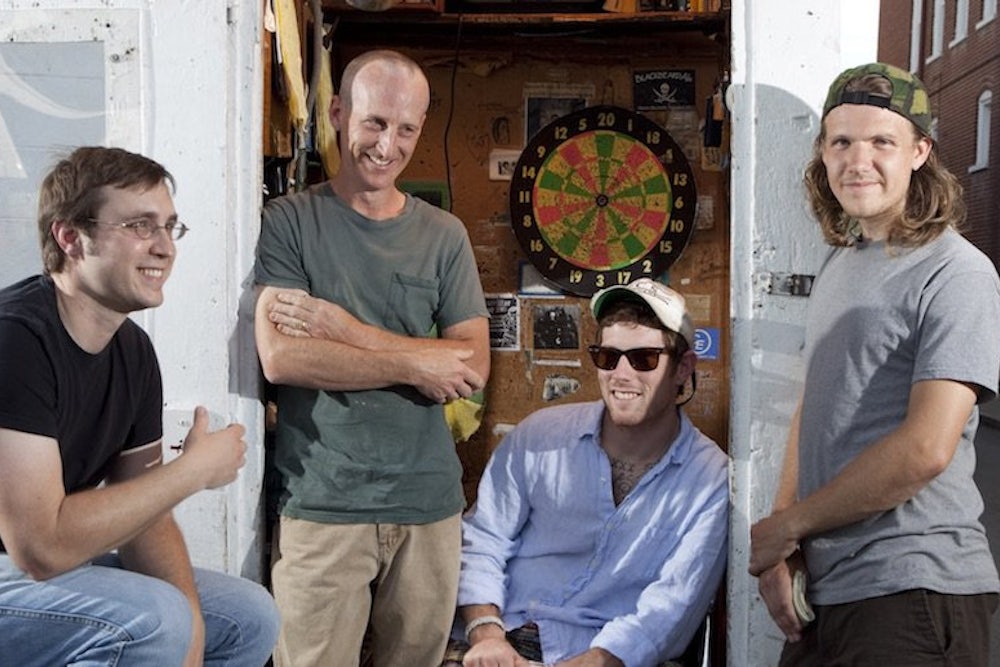“No one’s parent looks down at the crib of their newborn child and says, ‘God, I wish my son or daughter grows up to be a parking lot attendant.’” This is what Harper Hellems, one of the parking lot attendants profiled in Meghan Eckman’s 2010 documentary, The Parking Lot Movie, says about his job.
He’s almost certainly right; on the face of things, parking lot attendant is a terrible job. The numbers bear this out, as Slate’s Jordan Weissmann reported Wednesday. Data collected by Payscale.com show that this work is extremely poorly paid (median annual salary is $19,700) and not very satisfying (only 41 percent reported high satisfaction with their work). Most damning of all, only five percent of parking lot attendants reported that their work offers “very high meaning.” This was by far the lowest figure reported by workers in any of the 500 professions Payscale surveyed.
I worked with Harper at the Corner Parking Lot in Charlottesville, Virginia, a decade ago, in the year between getting my Ph.D. across the street at the University of Virginia and landing the job I now have as a college professor. It was the best job I’d ever had at that point. Like many of the attendants interviewed for the movie, working in that paved paradise helped me become a better person.
I didn’t expect that to happen. It only did because the CPL’s owner, Chris Farina, does not run it like typical parking lot. The things that made this seemingly awful job so good reveal what is wrong with many jobs—and show how they can be made better.
For one thing, the pay was better than you would expect. My hourly pay was a few dollars more than minimum wage, but on each shift a percentage of the revenue over a certain threshold also went to the attendant. This profit-sharing system meant I could make $16 or $17 an hour on a football Saturday or a busy weekend night.
The opportunity to make decent money made the attendants happy, and it was good for the business because we were intensely loyal to our boss. Our customers just handed us cash all day, so it would have been trivially easy to steal from the take. I never did, and to my knowledge, neither did anyone else. In fact, if a customer tipped me, I would usually put the money into the till. I was going to get part of it back anyway. (When the attendants got together, we often debated the ethics of receiving tips.)
Chris also recruited workers who would form a good team. Or rather, he left recruitment up to the workers themselves, so that they would find people they knew they could work well with. I was hired because I already knew most of the other attendants. In a sense, I was already a part of the business culture before I even wanted the job. As a result, we collaborated well even as we worked mostly alone. Instead of passing problems from my shift onto the next worker (like a car blocking another one in, with the driver nowhere in sight), I’d solve them because I didn’t want to make the job harder for someone I really liked.
The down side to this hiring strategy was that we were a pretty homogeneous group: often well-educated white guys in their 20s and early 30s with an affinity for bicycles. An irony visible in The Parking Lot Movie is that although the scruffy attendants set themselves against the frat bros who puked in the lot on weekends, we were a fraternity, too. I lived in a house with two of my coworkers that year, and when I moved out, another attendant moved in. It was a good party house.
Because the CPL is small but busy, it requires workers who can manage double-parking during the lunch rush and serve as unofficial security guards on a site for drunken student mischief. Doing the job well meant projecting friendly authority, defusing the tensions that emerge whenever human-driven vehicles get near each other, and above all, exhibiting patience. Parking lot attendants are vanishing as more lots turn to automated payment. In the CPL, at least, it was satisfying to know that machines could not fully do our work.
The biggest reason it was a good job is that it didn’t stake much of a claim on my life. I could read and write during quiet periods. I got the idea for my first book by talking with a customer (a UVA scholar). Friends would swing by the booth to chat. I’d leave an 8:30-to-5:00 shift and not be worn out.
There wasn’t “very high meaning” to the work. It was just parking, after all. But the job made it easy for me to find meaning elsewhere. Highly driven workers who “love what they do” so much that they do it all the time may have a better shot at finding meaning in their work than I did as a parking lot attendant, but I’m not sure they’re better off.
